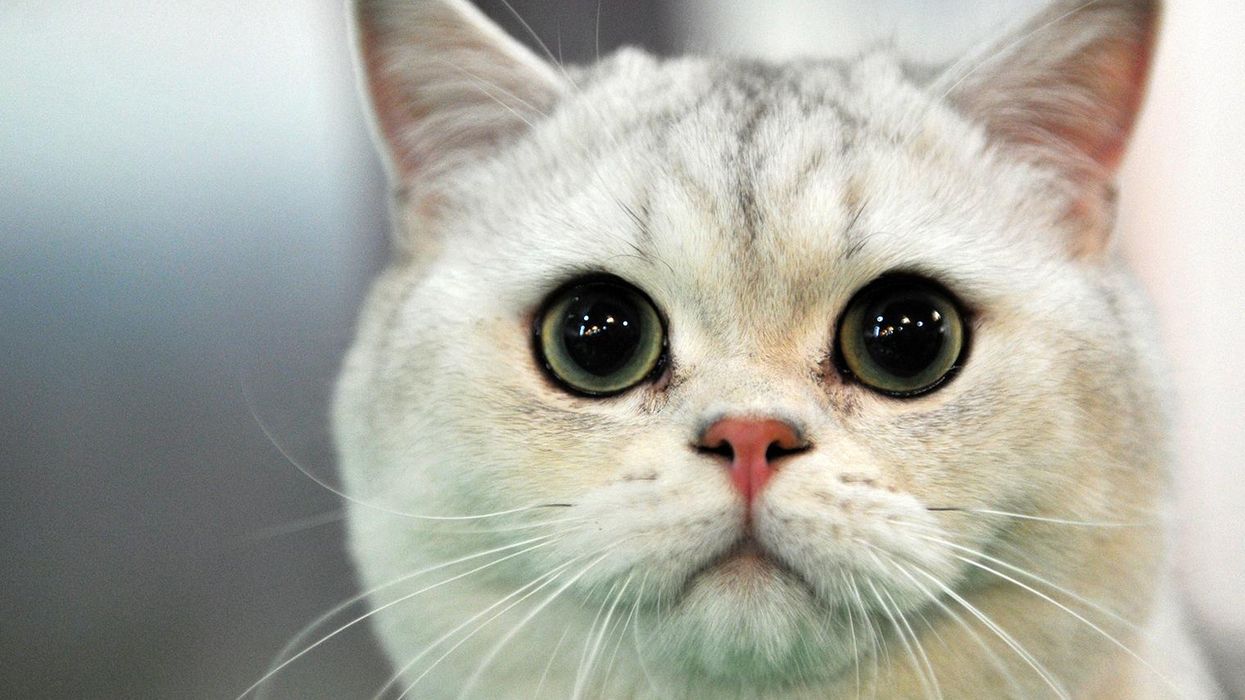
The disease is thought to have killed tens of thousands of cats in Cyprus
Cat lovers, look away now – a deadly virus that has killed thousands of cats in Cyprus has made its way to UK shores.
Cyprus has suffered an outbreak of feline infectious peritonitis (FIP) this year. It is estimated to have killed 8,500 cats in Cyprus in the first half of 2023, while one estimate puts the more recent death toll at 300,000 cats.
Dr Jo Lewis, a feline vet, told Sky News the virus spreads quickly where cats are living in close contact, such as rescue centres.
She said: “It’s also important to note that the virus can be transmitted mechanically on grooming brushes, cat litter scoops and even on human feet and hands.
“That theory may explain why many indoor-only cats in Cyprus are being affected.”
FIP is a mutation of the less harmful feline coronavirus (FCoV), which is relatively common among cat populations. This strain usually only happens when cats pick up what was normal FCoV, and then it mutates.
Professor Danielle Gunn-Moore from Edinburgh University said that this time, it’s different, because cats are passing the same virus between them.
She called the development “terrifying”, and said she is “really hoping” that the fast spread in Cyprus is down to specific genetic traits of cats in that part of the world.
Symptoms include a distended belly, potential breathing issues and being off their food. Cats that are wobbly or suffering seizures could also have the disease.
One cat, which had been brought from the Mediterranean island, has tested positive in the UK so far. Three more suspected infections, all with links to Cyprus, are being investigated.
The virus has shown no sign of being dangerous to humans but Dr Christine Tait-Burkard of the University of Edinburgh called for a temporary ban on cats being brought in from countries where the virus is circulating, which also appear to include Greece and Lebanon.
She said: “There are several weekly flights that are importing cats [from Cyprus] to the UK, so the risk of spreading this virus is very high.
“It’s not the moment to panic but we know from Covid that we need to react at this stage and not three months down the line.”
The best treatment available is an antiviral drug called GS-441524 – a tablet that needs to be given one to three times a day. Tait-Burkard said that for many owners it will be prohibitively expensive, with a standard three-month course costing around £3,000.
If a cat is particularly unwell, another antiviral called remdesivir is also possible, while in Cyprus cats are being treated with molnupiravir, which is used to treat Covid in humans.. That is currently limited to human use in the UK, however.
Let’s hope the UK’s cats really do have nine lives.
How to join the indy100's free WhatsApp channel
Sign up to our free indy100 weekly newsletter
Have your say in our news democracy. Click the upvote icon at the top of the page to help raise this article through the indy100 rankings.













